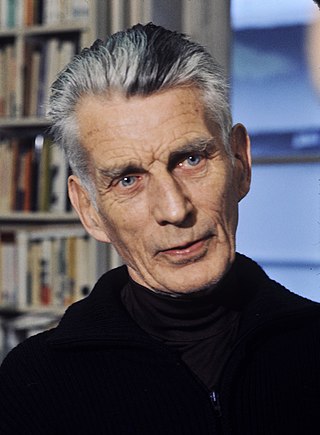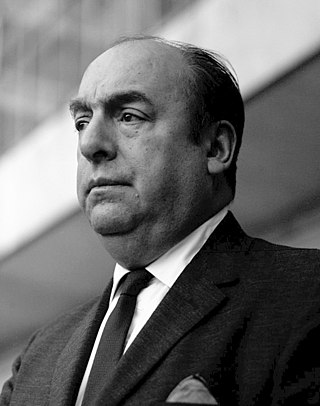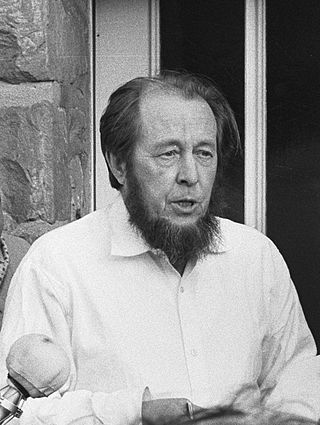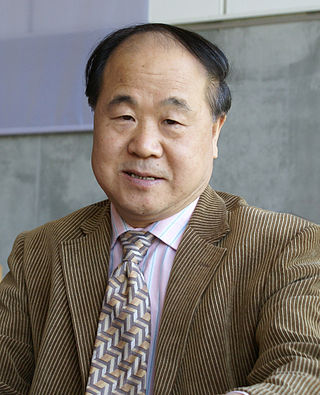
Jean Patrick Modiano, generally known as Patrick Modiano, is a French novelist and recipient of the 2014 Nobel Prize in Literature. He is a noted writer of autofiction, the blend of autobiography and historical fiction.

The Nobel Prize in Literature, here meaning for Literature, is a Swedish literature prize that is awarded annually, since 1901, to an author from any country who has, in the words of the will of Swedish industrialist Alfred Nobel, "in the field of literature, produced the most outstanding work in an idealistic direction". Though individual works are sometimes cited as being particularly noteworthy, the award is based on an author's body of work as a whole. The Swedish Academy decides who, if anyone, will receive the prize.

The 2016 Nobel Prize in Literature was awarded to the American singer-songwriter Bob Dylan "for having created new poetic expressions within the great American song tradition". The prize was announced by the Swedish Academy on 13 October 2016. He is the 12th Nobel laureate from the United States.

The 1969 Nobel Prize in Literature was awarded to the Irish author Samuel Beckett (1906–1989) "for his writing, which - in new forms for the novel and drama - in the destitution of modern man acquires its elevation".

The 2010 Nobel Prize in Literature was awarded the Peruvian writer Mario Vargas Llosa "for his cartography of structures of power and his trenchant images of the individual's resistance, revolt, and defeat." The prize was announced by the Swedish Academy on 7 October 2010. He is the first Nobel laureate in Literature from Peru and the fifth Latin American to become one after 1982 Colombian laureate Gabriel García Márquez and 1971 Chilean laureate Pablo Neruda.

The 2018 Nobel Prize in Literature was awarded to the Polish writer Olga Tokarczuk "for a narrative imagination that with encyclopedic passion represents the crossing of boundaries as a form of life." The prize was announced the following year by the Swedish Academy on 10 October 2019. Tokarczuk is the fifth Nobel laureate in Literature from Poland writing in Polish, after the poet Wisława Szymborska in 1996, and Czesław Miłosz in 1980.

The 1982 Nobel Prize in Literature was awarded to the Colombian writer Gabriel García Márquez (1927–2014) "for his novels and short stories, in which the fantastic and the realistic are combined in a richly composed world of imagination, reflecting a continent's life and conflicts."

The 2017 Nobel Prize in Literature was awarded to the British novelist Kazuo Ishiguro "who, in novels of great emotional force, has uncovered the abyss beneath our illusory sense of connection with the world." The prize was announced by the Swedish Academy on 5 October 2017.

The 2006 Nobel Prize in Literature was awarded to the Turkish writer Orhan Pamuk "who in the quest for the melancholic soul of his native city has discovered new symbols for the clash and interlacing of cultures."

The 2022 Nobel Prize in Literature was awarded to the French author Annie Ernaux "for the courage and clinical acuity with which she uncovers the roots, estrangements and collective restraints of personal memory". It was announced by the Swedish Academy on 6 October 2022. Ernaux was the 16th French writer – the first Frenchwoman – and the 17th female author, to receive the Nobel Prize in Literature.

The 2021 Nobel Prize in Literature was awarded to the Tanzanian-born British novelist Abdulrazak Gurnah who the Swedish Academy members praised "for his uncompromising and compassionate penetration of the effects of colonialism and the fate of the refugee in the gulf between cultures and continents." The winner was announced on October 7, 2021, by Mats Malm, permanent secretary of the Swedish Academy.

The 1971 Nobel Prize in Literature was awarded to the Chilean politician and poet Pablo Neruda (1904–1973) "for a poetry that with the action of an elemental force brings alive a continent's destiny and dreams." Neruda became the second Chilean Nobel laureate in Literature after Gabriela Mistral in 1945.

The 1970 Nobel Prize in Literature was awarded to the Soviet-Russian novelist Aleksandr Solzhenitsyn (1918–2008) "for the ethical force with which he has pursued the indispensable traditions of Russian literature." For political reasons he would not receive the prize until 1974. Solzhenitsyn is the fourth Russian recipient of the prize after Ivan Bunin in 1933, Boris Pasternak in 1958 and Mikhail Sholokhov in 1965.

The 1972 Nobel Prize in Literature was awarded to the German author Heinrich Böll (1917–1985) "for his writing which through its combination of a broad perspective on his time and a sensitive skill in characterization has contributed to a renewal of German literature." Böll is the fifth German author to be recipient of the prize.

The 2012 Nobel Prize in Literature was awarded to the Chinese writer Mo Yan "who with hallucinatory realism merges folk tales, history and the contemporary." He is the second Chinese author to win the prize after the exiled Gao Xingjian.

The 2011 Nobel Prize in Literature was awarded to the Swedish poet Tomas Tranströmer (1931–2015) "because, through his condensed, translucent images, he gives us fresh access to reality." He is the seventh Swedish author to become a recipient of the prize after Harry Martinson and Eyvind Johnson who were jointly awarded in 1974.

The 2009 Nobel Prize in Literature was awarded to the Romanian-German author Herta Müller "who, with the concentration of poetry and the frankness of prose, depicts the landscape of the dispossessed." She is the ninth German-language writer to become a recipient of the prize after Günter Grass in 1999.

The 2008 Nobel Prize in Literature was awarded to the French novelist Jean-Marie Gustave Le Clézio, better known with his pen name J. M. G. Le Clézio, as an "author of new departures, poetic adventure and sensual ecstasy, explorer of a humanity beyond and below the reigning civilization." He became the 14th French-language author to receive the Nobel Prize for Literature after Claude Simon in 1985 and was followed later by Patrick Modiano in 2014.

The 2003 Nobel Prize in Literature was awarded to the South African novelist John Maxwell Coetzee, better known simply as J. M. Coetzee, "who in innumerable guises portrays the surprising involvement of the outsider." He is the fourth African writer to be so honoured and the second South African after Nadine Gordimer in 1991.

The 2000 Nobel Prize in Literature was awarded to the Chinese émigré writer Gao Xingjian "for an æuvre of universal validity, bitter insights and linguistic ingenuity, which has opened new paths for the Chinese novel and drama." He is the first Chinese recipient of the prize followed by Mo Yan in 2012.

























